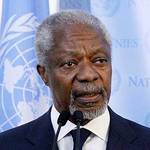Indeed the League has failed to create a consistent policy towards issues that matter to the region. For instance, it failed to coordinate its policy during the Civil War in Lebanon, both the 1990-1991 Gulf War and the 2003 War on Iraq, and the bid for Palestinian statehood at the United Nations in 2011.
The Arab Spring, which started in 2011, has offered the League a new opportunity for reform.
Some critics see positive developments in the League’s actions in Libya, where it supported a no-fly zone that led to the ouster of Muammar al-Qaddafi, and in Syria, where it called for President Bashar al-Assad to step down.
In November 2011, the Arab League suspended Syria’s membership, calling it to end the violence against protestors and to open negotiations with opposition groups.





